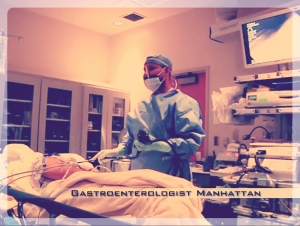The study of Gastroenterology is the study of the gastrointestinal (GI) tract or more easily put, the digestive system. They have full comprehension of how food moves through the body and the chemical breakdown (or digestion) of food throughout the digestive system. This includes everything from the start of consuming food to the end product of waste. This specialized type of doctor is going to be the most knowledgeable in any type of ailment related to these kinds of conditions compared to a general family practice doctor.
Overview
A Gastroenterologist is a specialized doctor who has dedicated their training to the learning of disease management in the gastrointestinal tract and the liver. This includes a wide range of organs that make bodies work effectively. Including all things in relation to the stomach, esophagus, small intestine, colon and rectum, gallbladder, pancreas, liver and bile ducts. This involves in-depth knowledge on the normal function of each of these organs and how they work together to digest food properly and to remove waste. To find a Gastroenterologist in NYC use https://www.mybodhi.com/drshim/ .
Related Conditions
It is quite common for people to have a digestive issue. Things such as heartburn (gastro esophageal reflux), irritable bowel syndrome, pancreatitis and other nutritional problems are some often heard of ailments that impact a large percentage of the population. Making the need to have expert Gastroenterologist on hand to assist in medical treatment. There are many other conditions that also fall under the gastrointestinal tract umbrella. Conditions like colon polyps and cancer, peptic ulcer disease, hepatitis, colitis, gallbladder and biliary tract disease. Each of these things are to be diagnosed by a qualified Gastroenterologist and followed up with through the recommended treatment.
Training
Since a Gastroenterology is a specialized field, the training required continues for 5 to 6 years after the completion of medical school. This time would include 2 to 3 years in residency for internal medicine, plus another 2 to 3 years in specific Gastroenterology training. This second part of training is called a fellowship. This is a rigorous program where doctors who aspire to be Gastroenterologist work with the patients to evaluate their condition and provide recommendations to help prevent and to maintain gastrointestinal health. As a part of this training it includes learning procedures of doing an endoscopy, colonoscopy and sigmoidoscopy, since these are all procedures related to the digestive tract. With all of this training totally around 13 years of study.

